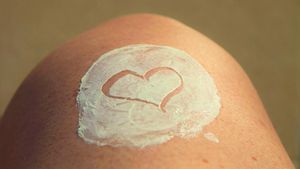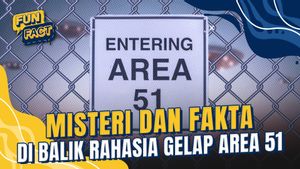JAKARTA - Symptoms of soybean allergies usually appear in children aged 3 years and under. And mostly, this allergy can be overcome. However, soybean allergies can develop at any age. Soybean allergies can be a cause if you experience stomach problems, itching, or coughing repeatedly after eating foods made from soybeans.
Although soybeans are generally considered safe to consume, people with soybean allergies should avoid consuming this food. The following is the next explanation, reported by Very Well Health, Thursday, May 2.
If you have soybean allergies, any product that contains soybeans or soybean derivatives, which is that the ingredients obtained from soybean processing can cause symptoms. Soybeans and soybean derivatives can be found in the following foods:
Soybean allergic reactions can affect various organs and body systems, including digestive system, breathing, and skin. In rare cases, people with severe soybean allergies experience anaphylaxis.
Soybean allergies rarely cause anaphylaxis. This dangerous and potentially life-threatening reaction causes respiratory problems and sudden decrease in blood pressure that can cause the body to experience shock. Initial symptoms may be similar to milder reactions but worsen in seconds or minutes after exposure to allergens.
Symptoms of anaphylaxis include:
Anaphylaxis must be handled immediately with the use of epinefrine using auto injector (Eppen).
Some people with soybean allergies experience symptoms that affect the digestive system, especially the digestive tract. Although most of the symptoms of GI are uncomfortable, some symptoms may indicate severe allergic reactions. Examples of GI symptoms are as follows:
Similar to GI's symptoms, respiratory symptoms can range from mild to severe. Symptoms of breathing from soybean allergies can include:
SEE ALSO:
Soybean allergies can also affect the skin. Symptoms are like;
Treatment for soybean symptoms and allergic reactions varies depending on the system of the affected body and the severity of the symptoms.
Nosal corticosteroids: Nosal spray that reduces swelling and relieves nasal congestion, runnyness, and itching
Antihistamine: Drugs are available in various forms (for example pills, fluids, etc.) that hinder the body's response to allergens, thereby minimizing symptoms
Dekongestan: Drug that reduces nasal congestion
Topical corticosteroids: Obats in the form of controls or creams that are applied directly to the skin to treat itching skin reactions.
oral corticosteroids: Doctors usually prescribe this type of oral drug to treat severe swelling and reduce the systemic effect of allergic reactions.
Epinephrine: This drug, such as Epicen, which is branded, is the only drug used to reverse potentially life-threatening anaphylaxis.
The English, Chinese, Japanese, Arabic, and French versions are automatically generated by the AI. So there may still be inaccuracies in translating, please always see Indonesian as our main language. (system supported by DigitalSiber.id)

















